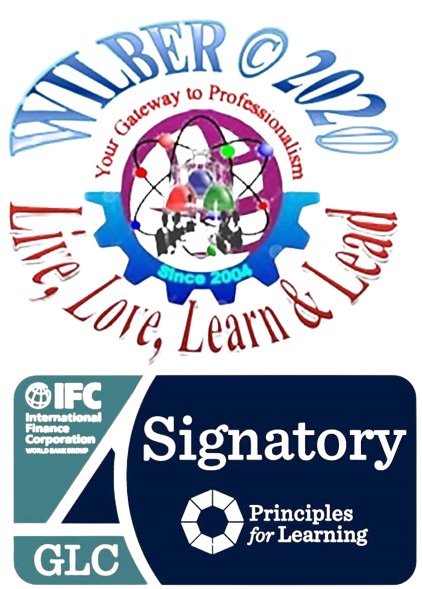Part 1(a)
CRIMINOLOGICAL RESEARCH AND THEORY
THE CRIMINOLOGY AS A SCIENCE
Criminology is the study of crime, as indicated by the formative Latin terms crimin (accusation or guilt) and -ology (study of). Summing it up, it is the study why “PERSON BECOMES AN ACCUSE, WHY HE IS GUILTY, OR WHAT WAS THE REASON FOR HIS ACTION”. You discover all those things when you study your Introduction to Criminology and Theories of Crime.

As an intellectual domain, criminology comprises contributions from multiple academic disciplines, including psychology, biology, anthropology, law, and, especially, sociology. Although the defining statements of criminology are rooted across these diverse areas, contemporary criminology is becoming ever more intertwined with still additional sciences and professional fields such as geography, social work, and public health.
This plurality of influences often referred to as multidisciplinarity, is altogether logical given the complex subject matter and diverse nature of the crime. Scholarly attention to crime from various perspectives allows for an extensive range of research questions to be addressed, making possible a fuller understanding of the criminal mind, the nature of crime, and social control processes. And this is actually the focus of SCIENTIFIC CRIMIONOLOGICAL RESEARCH.
Legal scholarship, for example, ranges from philosophical attention to social justice issues to technocratic factors determinant of case outcome. Alternatively, psychology approaches the topic of crime with a focus on individual-level maladjustment and behavioral abnormality. Sociological criminology differs still by concentrating on the multiple causes and nature of the crime, as well as society’s reaction to it.

From which of the above are YOUR INTERESTS? Because by answering that, you can start coming up with your own research question as early as this time, in preparation for your thesis writing.
The individuals who study crime, CRIMINOLOGISTS, engage research on virtually every imaginable aspect of illegality and society’s reactions to it, ranging from the development of theories of crime causation, the roles and uses of social control (e.g., police, courts, and corrections), crime prevention, and victimization. Of course, criminologists have also developed substantial knowledge bases on specific offenses (a-d), which are often categorized as (a) crimes against property (e.g., burglary, theft, robbery, and shoplifting); (b) crimes against a person (e.g., homicide, assault, and rape); (c) morality/social order crimes (e.g., gambling, prostitution, substance offenses, vandalism); and now (d) technology crime/cybercrime, which overlaps with and often facilitates crime in each of the other categories.
The collective basic knowledge that criminologists have generated through the scientific process has great potential for informing social policy and criminal justice practice through enhancement of the effectiveness and efficiency of prevention, intervention, enforcement, and rehabilitative strategies and practices in the 21st century.
This only means that IT IS EXPECTED THAT THROUGH SCIENTIFIC CRIMINOLOGICAL RESEARCH, the government can handle properly PROBLEMS RELATED TO CRIME.
But before continuously insisting on the functionality of criminology in society, and its uses as a BODY OF KNOWLEDGE, in order for us to make use of this profession for the sake of HUMANITY, I would like to present to you the following video for your better understanding about the use of criminology in theory building.
In our next video (I am sorry for the echo) we will now look at the importance of the theories, in relation to law or logic vis-a’-vis evidence! It is important to UNDERSTAND BOTH because it is through that we will try to harness our interest to create a GOOD RESULT FOR A SCIENTIFIC RESEARCH out of criminology.
This introductory research presentation AND VIDEO for people like you quickly surveys the emergence and evolution of criminology, from seminal contributions to its contemporary state in academe. While tracing criminology’s history and acknowledging its intellectual diversity, it is contended that criminology is correctly understood and best practiced as a social science. Furthermore, as a field of scientific inquiry criminology is no longer a specialty area of other established disciplines, such as deviance within sociology or abnormal psychology, but instead is a new and steadily growing independent academic discipline in its own right. Last, the rise of academic criminal justice is acknowledged as a shaping force on criminology that is steadily moving the discipline toward greater interdisciplinary status and public policy utility (the focus of Research Paper on Criminology and Public Policy).
AT ITO PO ANG HINDI NGAYON MAINTINDIHAN NG MGA ESKUWELAHAN AT MGA NAGSIPAGTAPOS NG CRIMINOLOGY, KUNG ANO BA TALAGA ITONG PROPESYON NA PINASOK NILA.
You can download the video transcript HERE.
If you have questions about the topic, I am encouraging everyone to post their question in the GROUP CHAT or send it at wrberalde@yahoo.com.
PART 2 will soon be posted!
Part 2 is all about: Quantitative and Qualitative Research; The Qualities of a Good Researcher and the Difficulties of Criminological Research; and Selection and Formulation of a Good Research Problem.
